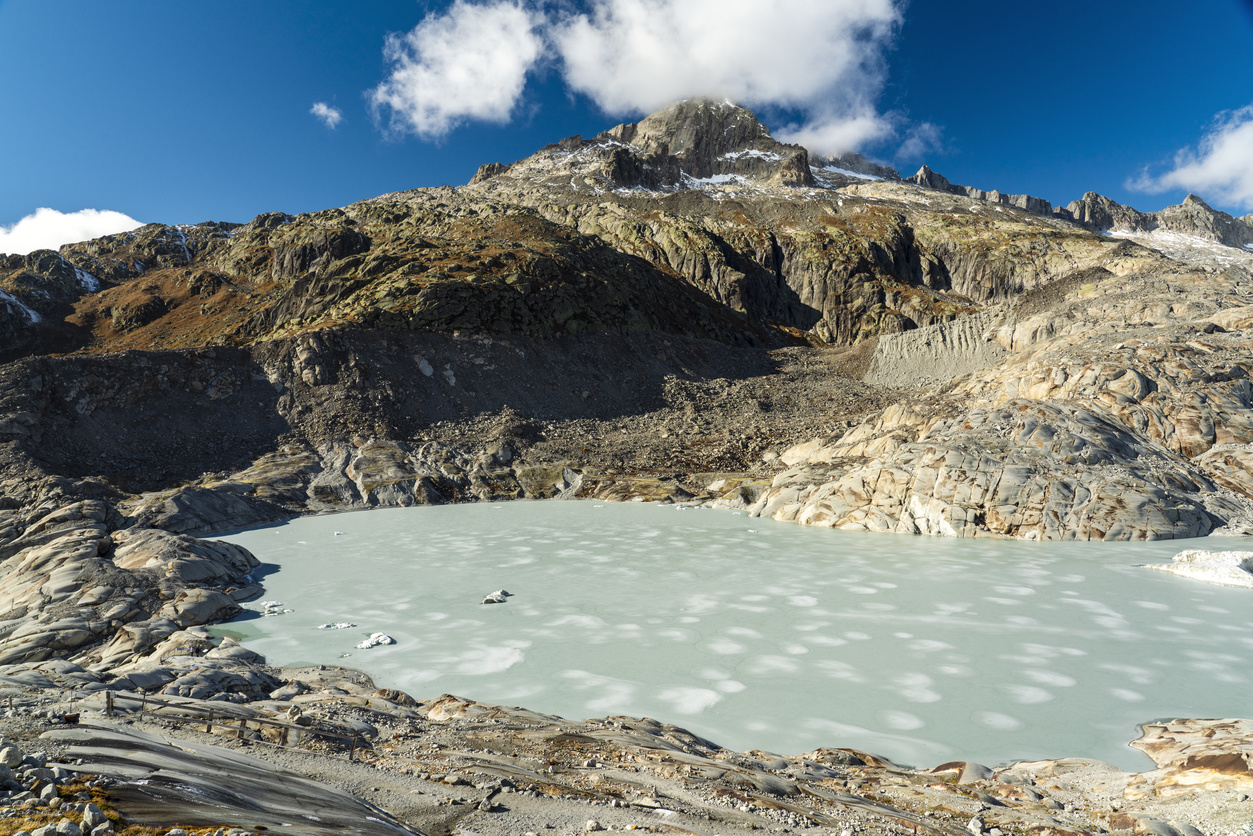
Environment director warns of increasing climate-related risks in Switzerland

The director of the Swiss Federal Office for the Environment (FOEN) has warned of increasing climate-related risks in Switzerland in an interview with SonntagsBlick on Sunday.
+Get the most important news from Switzerland in your inbox
“Natural hazards are becoming more frequent and more intense, and Switzerland is becoming more vulnerable because of its population density,” Katrin Schneeberger told SonntagsBlick.
The thawing of permafrost is a major problem that is making mountains less stable, resulting in more frequent landslides and rockfalls, she said.

More
The devastating glacier collapse in Blatten: what next?
Global warming affects not only the Alps, but also the central Plateau regions, towns and cities – “in short, all of us”, she adds.
The concrete surfaces of cities are unable to absorb water in the event of heavy rainfall, which explains around half of the damage caused by flooding, said Schneeberger.

More
Why Switzerland is among the ten fastest-warming countries in the world
Adapt+ programme
The environment office director points out that urban areas struggle to cool down at night during heatwaves, which represents a risk for people’s health.
“Personally, I’m not a big fan of air conditioners. You can already do a lot to cool things down with blinds and curtains,” she said.

More
Climate solution for the future: How to keep cities cool during heatwaves?
To promote adaptation to global warming, the FOEN has launched the Adapt+ programme. Schneeberger explains: “It enables us to test cooling road surfaces or plant trees that are resistant to climate change in order to protect homes, roads and railways from landslides.”
“Demand is very strong,” says Schneeberger, adding that in the medium term it is likely to exceed the federal funds currently available.
>>This short video looks at Switzerland’s top climate-related risks in the coming decades – all heat and drought related.
Translated from French by DeepL/sb
We select the most relevant news for an international audience and use automatic translation tools to translate them into English. A journalist then reviews the translation for clarity and accuracy before publication.
Providing you with automatically translated news gives us the time to write more in-depth articles. The news stories we select have been written and carefully fact-checked by an external editorial team from news agencies such as Bloomberg or Keystone.
If you have any questions about how we work, write to us at english@swissinfo.ch

In compliance with the JTI standards
More: SWI swissinfo.ch certified by the Journalism Trust Initiative




























You can find an overview of ongoing debates with our journalists here . Please join us!
If you want to start a conversation about a topic raised in this article or want to report factual errors, email us at english@swissinfo.ch.